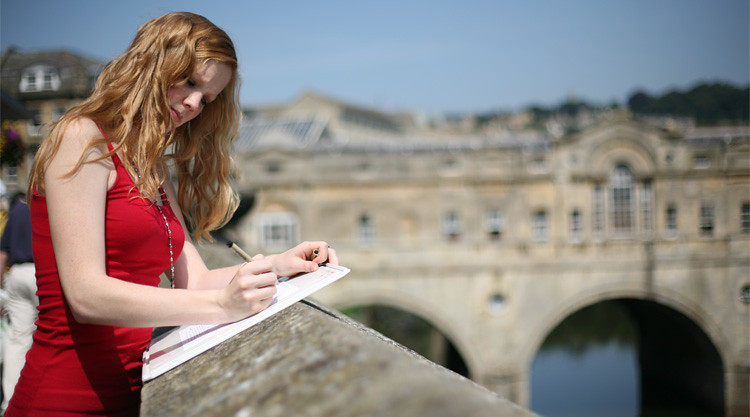What made you decide to study the MSc in Conservation of Historic Buildings?
Going into my studies, I was well aware that it was not the most lucrative of potential professions. I have a passion for the subject of building preservation though, and I’d prefer to earn less and do something that I thoroughly enjoy than to make more and feel uninspired. I still stand by my decision. Doing something that moves you, makes the daily nine-to-five much more bearable and improves quality of life.
What influenced your decision to pursue a career in engineering?
I knew at a very early age that I had a passion for historical architecture, but it wasn’t until I was studying for my BA in Architectural Design in the United States that I realised I wanted to specialise in historic building preservation.
I was on holiday in the UK visiting a friend when he surprised me with a trip to Corbet Castle in Shrewsbury. Built around 1100 AD, the roof and floor had long ago fallen and rotted away. All that remained were the stone castle walls nestled between green grass and blue sky. I still remember how the sight of it took my breath away. I knew then that I wanted to pursue a specialised career in the heritage and conservation sector. Sometimes one’s influences can be as simple as a single life-changing moment. For me, that moment of inspiration was Corbet Castle.
Where have you previously worked and how did this lead to your current position?
After graduation I began work as an intern at the Kennesaw Historic Preservation Commission in their Planning and Zoning Department. As a Historic Preservation Intern, I work closely with the Commission on projects essential to the preservation of the historic downtown of Kennesaw. I conduct in-depth research on the history of every historic home in the Cherokee Street Historic District. This work includes oral interviews, property deed research and site inspections.
What challenges have you faced and how did you overcome them?
I graduated in December 2013 and returned home to the United States to search for work in my new field. I quickly discovered that while employers want the impressive degree, they also want a certain level of work experience. For me to break into my field, I took my current position as an unpaid intern. In order to make ends meet I also hold down a management role with a non-profit organisation for domestic violence victims. It’s not ideal, but I really don’t mind the extra work. I know that my hard work will pay off and I will eventually have earned all the necessary experience it takes to become successful.
What aspect of engineering do you particularly enjoy?
Engineering and architecture are both hands-on fields. You can’t be interested in pursuing a field in either area and not be willing to get your hands dirty. You have to be ready to get out on-site, take measurements, meet with your contractor, etc. You are creating something. It doesn’t matter if it’s a building, a bridge, or an engine. It is your work and it requires your hands-on involvement. This is what I love about these studies/careers; you are the creator and you are engaged with your process every step of the way.
What advice would you give to young women interested in studying engineering?
To the young women who want to follow architecture or engineering I have only one piece of advice for you: love what you do. Don’t get involved for the money. If you love numbers and structures, getting involved and making a difference, and designing something born from the very depths of your own creative consciousness, then this may just be the right field for you.
Women are an intellectually strong sex but we also possess a calm reasoning ability that can allow us to handle stressful situations. We can do this career field and we can do it well. We just need more women of determined and passionate nature to join us.
What are your career plans for the future?
My career plans are simple. After finishing my two years of basic work experience I intend to follow my dream of a career as a Historic Buildings Conservation Officer. This may mean a position with a historic preservation society or a government placement with a town council, or it may mean going into business for myself when the time is right. One day I may even return to Britain and resume my career in the country that started this path in my life.
